How to Choose A Backcountry Hunting Backpack (video included!)
Quality hunting backpacks are expensive, so if you’ve never owned one, you’re going to wonder at least two things: 1) Is it worth it to spend all that money, and 2) How do I decide which one to buy?
Lucky for you, I’m going to help you with that second question because the answer to the first one is easy. YES, they are no doubt worth the money.
There are a lot of different backpack hunting pack options these days, and they all come with pretty high price tags. It’s not feasible for most people to buy all of them at once to try out and then ship the ones back you don’t want, so you’re left with having to figure out from afar which one is going to work best for you. I don’t like the idea of pulling the trigger on a $600 backpack without having laid my hands on it first, but that’s how the industry is. At some point, you have to make a decision based on your research and find out.
If you’re in the market for your first hunting backpack, then this article should help you with that research part!
Contents of this Article
IS THE COST OF A HUNTING BACKPACK WORTH IT?
WHY HUNTING PACKS ARE SO EXPENSIVE?
HOW DO I KNOW IF I NEED A HUNTING BACKPACK?
WHY CAN’T I USE A REGULAR BACKPACKING BACKPACK?
HOW TO CHOOSE A HUNTING BACKPACK
WHAT TO DO IF YOUR PACK DOESN’T WORK OUT?
FINAL THOUGHTS ON HOW TO BUY A HUNTING BACKPACK
LINKS TO BACKPACK HUNTING PACK MAKERS
Is the cost of a backpack hunting pack worth it?
In short, yes, it’s worth it. Anything you can do to make your life easier in the backcountry is worth the investment, especially when it comes to load-hauling. How much you want to spend to make your life easier is up to you, but I think all backcountry hunters would agree that hauling meat out of the hills as comfortably as possible is worth every penny invested.
YES, people have been surviving without expensive hunting backpacks for thousands of years so NO, you don’t NEED one, but let’s refrain from going down that rabbit hole of what you NEED and don’t NEED in life. The fact of the matter is that we WANT gear that makes our life better in the field and we’re willing to spend money to make that so. Investing in a quality hunting pack, regardless of brand, that is capable of hauling heavy loads out of the backcountry is a game-changer. It’s not going to make your pack out EASY or ENJOYABLE, but it will no doubt make it a far less s****y experience.
A quality hunting pack won’t fail under stress, will last for years, and provides the structure for the load to ride on so you can focus on taking your steps instead of having to wrestle an awkward load.
Why are hunting packs so expensive?
Any research you’ve done by now is probably telling you you’re about to spend at least $500 to $700 on a new hunting backpack. Yikes, that’s a lot of money! We already know that a quality pack is worth the investment, but why in the world are they SO expensive? There are a couple of major reasons why.
MADE IN THE USA
This is probably the biggest factor in cost. From what I know, the US is leading the charge on backcountry hunting packs and since all of the brands in the States are operated by and serve red-blooded Americans, they’re not going to ship their manufacturing overseas if they don’t have to. The “MADE IN THE USA” label is a big deal for them because it plays a HUGE role in sales and reputation. Hunters are often very patriotic individuals and they want to spend their money on AMERICAN MADE brands. As such, brands manufacturing their packs in the States are going to create a higher quality product and because of the higher costs here, the final product will have a much higher price tag. That’s just how it works.
MATERIALS
Hunting specific backpacks require studier materials if it’s going to survive the rigors of a hunt and a pack out. The pack frame is the keystone here and is usually made of carbon fiber, titanium, or some other durable and load-stable material. Those materials aren’t cheap so this just adds to the final price tag. A high-quality product requires high-quality materials and design.
BECAUSE THEY CAN BE - THE DEMAND IS HIGH AND PEOPLE WILL PAY
Each brand has its own margins they’re working with so I can’t say whether or not they’re just barely getting by. If I had to guess, they’re not exactly making just a few pennies on these packs. I’m sure they COULD be sold cheaper, but as long as hunters are willing to pay good money for a pack, they’re going to sell it for a higher price point so they can increase that profit margin. It just is what it is. The market dictates the price points so as a business owner, it makes sense to aim for that price point and increase profit margins where you can.
How do I know if I need a backpack hunting pack?
Hunting backpacks are designed for hunters whose only means of hauling the meat back to the truck is by their own two feet. If you fall into that category then yes, you’d for sure benefit from one of these top-of-the-line backpacks.
If you don’t fall into that category because you can get a quad, a truck, or a pack animal in there to haul the animal out for you then save your money and buy yourself a regular old backpack that will carry your things for a couple of hundred bucks. Unless you have a pile of money burning a hole in your wallet, there’s really no need to have an expensive load-hauling pack on your back if you don’t NEED to haul meat with it. Regular backpacks are lighter, cheaper, and make more sense for those who aren’t going to depend on it to carry out a quartered animal in.
Why can’t I just use a regular backpack?
You can pretty much make anything work. You could build a house with a hammer and a hand saw if you had to, but you’d hate life and there are far better tools out there for the job. The same goes for backpacks.
Backpacks are tools. Be it thru-hiking, hunting, or going to school. Each bag has its own reason behind the design and its own use case. Regular backpacks, like what you’d buy from a big box store like REI, are NOT designed for hauling heavy loads. You’d be hard-pressed to find a pack at one of these stores that has a load rating of over 40 lbs. because most people headed into the backcountry; 1) aren’t carrying super heavy packs, and 2) aren’t intending on coming out HEAVIER than when they went in.
If you have a backpack that’s only rated to 40 lbs. and you load it to 40 and beyond, you’re going to compromise the frame. You could break it or bend it and the fallout from that could give you some serious pain. Once the frame is compromised, the jig is up and life gets even worse from there.
Hunting backpacks that are designed to haul heavy loads for packing out an animal have a MUCH HIGHER load rating. Most manufacturers won’t even list the rating because if you can find a way to wear it, it’ll carry it just fine. If anything does give out, it’ll be the human, not the pack.
But, if you don’t have the dough to cough up for an expensive backpack and all you have is your old pack from the big box store, you could make it work by breaking down that animal into smaller loads. Make more trips with less weight and you’ll be good to go. At some point, you’ll likely grow tired of that method and eventually spring for the hunting pack and when you do, you’ll immediately see and feel the difference in load-hauling capability.
How to choose a hunting backpack
If you fall into the category of someone whose only option for hauling meat out of the field is on your back, then you have some decisions to make, but how do you decide? Without going too far into the weeds, mentioning brand names, or my own personal preferences, I’ve created a list of 3 objective considerations you’ll want to account for when deciding on a pack.
These are in no particular order because they all play a part in your overall decision. You’ll want to decide for yourself which is the most important because you may not get everything you want in a pack. There’s always something you’ll have to give up in order to get something else. Nonetheless, these 3 things should help guide you to the right pack.
1) Overall Pack Volume
Pack volume plays a big role in your decision as to which pack you’re going to purchase. Most big-name pack makers offer a modular system where you can swap the main bag out for various sizes and designs while keeping the same pack frame, but you’ll still need to make that initial decision on which bag to choose.
Do your best to avoid buying the largest pack possible (5000 cubic inches or more). Since you’re new to backpack hunting, you’re going to think that bigger is better, but it’s not. Smaller is ALWAYS BETTER because you’re trying to come out heavier than when you went in, right? The bigger the bag, the more gear you’ll bring, and the more it’s going to weigh.
On the flip side, going to small can be a mistake as well if you’re not dialed in with your gear just yet. Smaller packs in the 3000 -3300 cubic inch range are great for going in light and fast, but you really have to have the right gear if you expect to get it all in there. Small packs are for those willing to go without some creature comforts and know the differences between NEEDS and WANTS. As the season gets colder, winter gear will naturally take up more space which makes packing your gear into a smaller pack even harder to do.
If you’re new to backpack hunting and still getting everything figured out, I’d suggest looking at a pack bag that is in the 3500-4200 cubic inch range (60-70L). It’s a big enough bag to give you some flexibility with your gear choices but not too big to allow you the extra space for things you don’t need. It’s a great middle-ground for all backpack hunters regardless of experience level and season.
Be realistic with yourself about how you’ll actually be hunting. The majority of us aren’t hunting for 14 days in the Yukon with zero support. We’re more than likely going to be out for 4-6 days and within striking distance of the truck if we need additional supplies. Even if it’s a 10-day hunt, the likelihood of having to carry 10 days worth of food on you just isn’t common, and to be frank there are much smarter ways to hunt. If you do happen to find yourself on a 10-day backcountry hunt, take 5 days worth of food with you, stash the rest at your rig, and resupply yourself by hiking out mid-hunt for that next stint of days.
2) Overall Weight (but not before comfort)
Always be aware of how much a pack weighs before you buy it, but don’t make that the end all be all reason for your purchase. A light pack is great as long as it’s comfortable for you to wear with a load.
This is something you’ll only know when you know it, so don’t be surprised if you find out the pack you’ve wanted all your life sucks once you put a load in it. The reality is that some packs just don’t work for certain people. We’re all built differently and there’s no way a there could be a “one pack fits all” solution.
I’m always looking to shave weight wherever possible, and the backpack is no doubt a great place to shave that weight, but just be wary of it going too far. Lighter packs mean lighter materials used and fewer features. That could ultimately mean a reduction in durability and overall longevity of the pack.
Comfort and weight go hand in hand so just keep that in mind as you shop the options. There are certain pack companies that offer a great pack that is in 7 lbs range, but for me, that’s just too heavy. They’re obviously well built, but I think at that weight they could use a weight loss program. That said, I know a LOT of people swear by those brands and that’s the only thing that matters. To them, it works just how they want it to and they’re willing to carry the extra weight to achieve that comfort and enjoyment.
There’s no exact weight I can tell you that a pack should and shouldn’t weigh because it comes down to personal preference based on fit and feel. I naturally look to the lightest pack that’s built for the rigors of the mission.
3) Function and Operation
I don’t care who makes it, how much it weighs, what fancy color it is, or how great of a deal I got on it, if the pack sucks to live out of and operate, I want nothing to do with it.
Always, always, always, consider the function and operation of a backpack. This comes down to personal style and how you like to pack your things so we’re all different and there’s no right or wrong way to do it. There are brands out there that I’d love to try out but won’t touch with a 10-foot pole because I know for a fact it won’t work with how I personally do things, and I think that’s just fine.
If this is your first backpack you’re in a great place because you won’t have any preferences just yet on how you’d like a backpack to function in the field. After your first couple of trips, you’ll learn what works and what doesn’t and you’ll soon fall into the black hole of trying to find the perfect pack for how you do things (welcome to the club - your membership pin is in the mail shortly).
My only advice here is to keep it simple. Too many pockets, zippers, and weird features just make everything messy. Backpacking is about efficiency so the less you’re fiddling around with your pack, the more time you have to look for the game you’re hunting.
When you DO decide on a pack to buy, DO AS MUCH RESEARCH AS POSSIBLE ON HOW THAT BAG WAS DESIGNED TO BE USED.
This is key because if you use the pack the same way as the designer designed it to be used, you’ll have a great time in the field with it. If, on the other hand, you use it in a manner that it was NOT designed for, you’ll become extremely frustrated. Most pack makers out there today have a YouTube channel or some sort of video content showing you how the pack works and examples of how to pack your things into it. Watch as many of those videos and the videos of other users as you can so you get a feel for how to use the pack.
If you’re becoming frustrated with your pack, feel inefficient, or uncomfortable at any time, start shopping again or change how you’re doing things.
Bonus Tip: Warranty
Most pack makers worth spending money with offer a solid warranty which is the reason why this is a bonus tip and not one of the 3 things to consider when buying a hunting pack. This is more of an insurance policy for you just in case you start thinking maybe you’ll get a little creative with your spending and go with an off-brand no one has ever heard of. Just do yourself a favor and check the warranty information and look for reviews on how that’s been handled in the past. When you’re spending big dollars on a backpack, you’ll want to rest easy knowing that the maker of your pack has your back in the event something on it fails.
Some companies are better than others so just do your research so you at least know what you’re getting into if you happen to have an issue.
What to do if your pack doesn’t work out
Sell it! There is a great used marketplace for these hunting backpacks so if for some reason you don’t like the pack you bought, sell it on Craigslist or one of the many Facebook Groups for used hunting gear. You won’t get full price for it, but you’ll get some money back that you can put toward your next pack and to me, that’s a win.
Once you know you don’t like your pack, sell it right away so you can get the most out of it. Don’t wait for it to get gross or until something breaks on it. If that happens, you' just won’t get very much for it.
I’ve bought and sold both used and new packs looking for “the one” so trust me when I say you can EASILY sell a pack you’re not a fan of or that’s not working out how you wanted it to. And on that note, try not to have rose-colored glasses about your gear. We can often get emotionally connected to our gear because we bought it with our money and completely lose track of how much it sucks. Always evaluate your gear and be honest about how it’s performing.
Keep chipping away at your kit and look for ways to improve it season after season.
Final thoughts on how to buy a hunting backpack
At some point, you’re just going to have to make a decision and give one a shot. Yes, they’re expensive, but they’re worth it. For backcountry hunters, the pack is on par with footwear because it hauls your gear, protects it from damage, and brings home your harvest. Maybe you’ll get it right with your first purchase, maybe you won’t. Regardless, it’s a process and it takes time to dial everything in.
Be patient with yourself and enjoy the process because that’s really all that matters anyway. Best of luck to you and your new adventures!
Links to Popular Pack Makers
Emory, By Land
Thanks for stopping by the website and checking out this article! If you have any questions for me or want to connect, you can leave a comment below or shoot me a personal message at emory@byland.co.
Support By Land
By Land is independently published meaning no one pays to have this content written or created. If you’ve enjoyed this article, the website, resources, or other By Land content and want to become a supporter, please consider making a one-time donation. 100% of each donation will go right back into operational costs so I can continue to bring you the same great content for years to come!
Thank you!

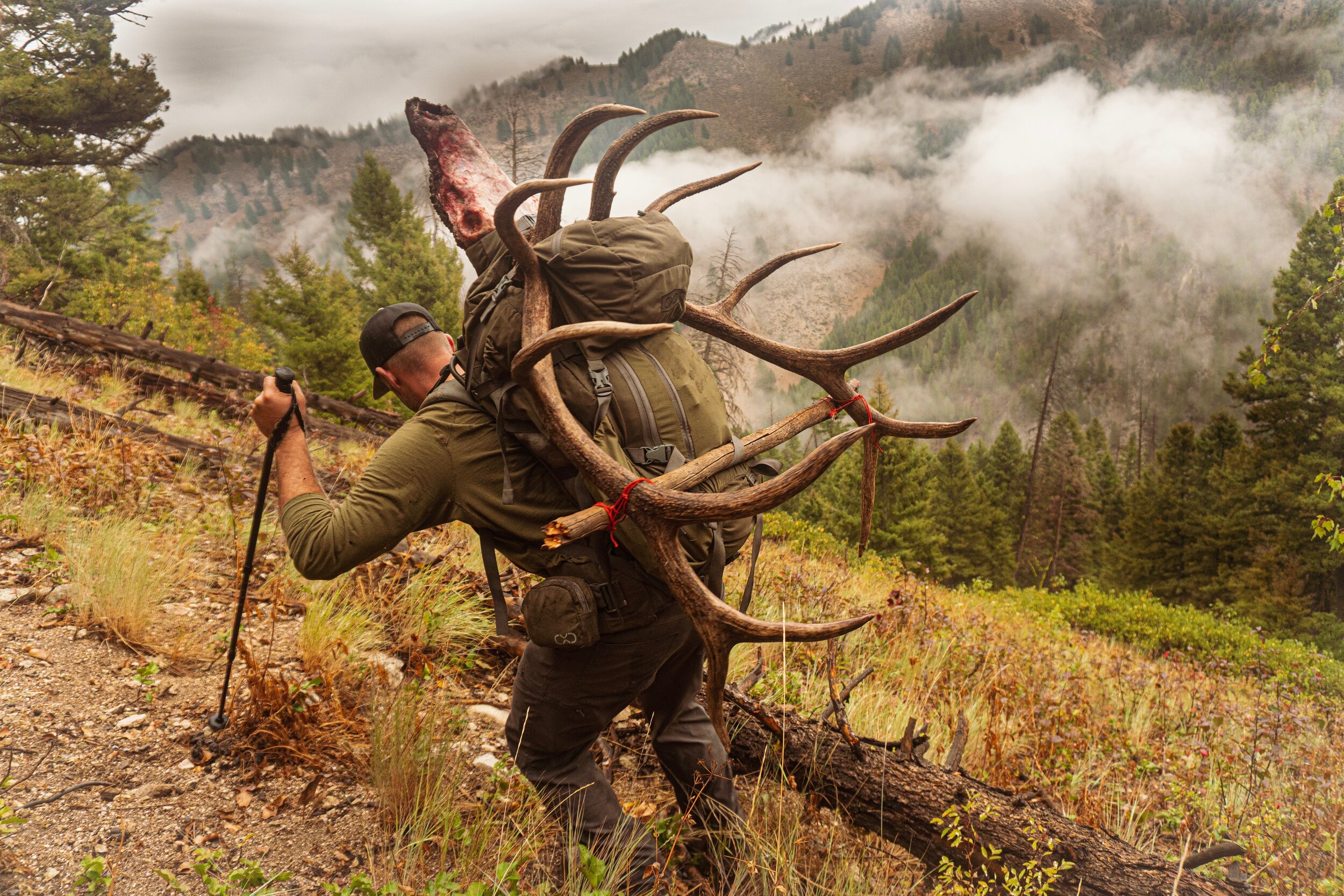


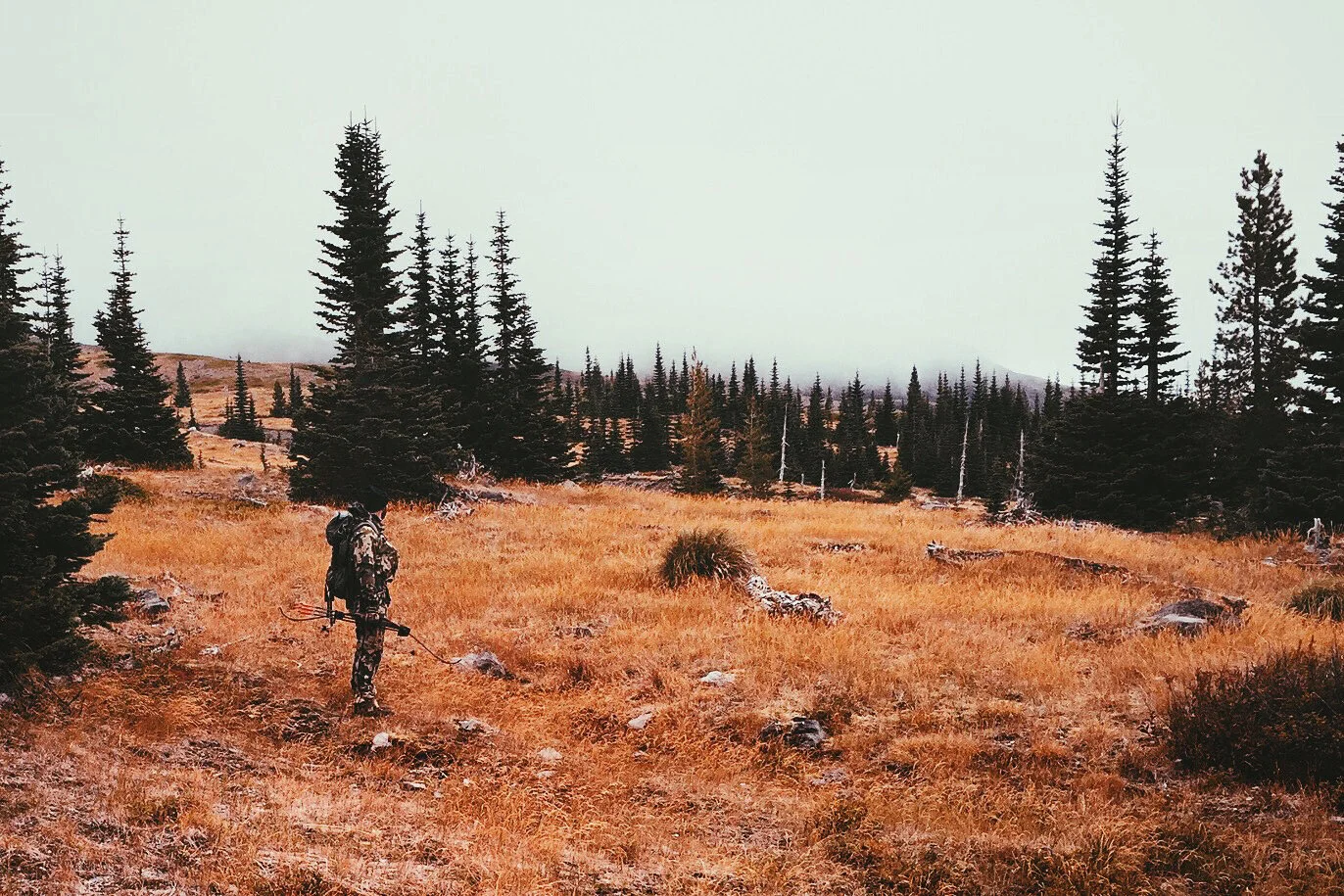
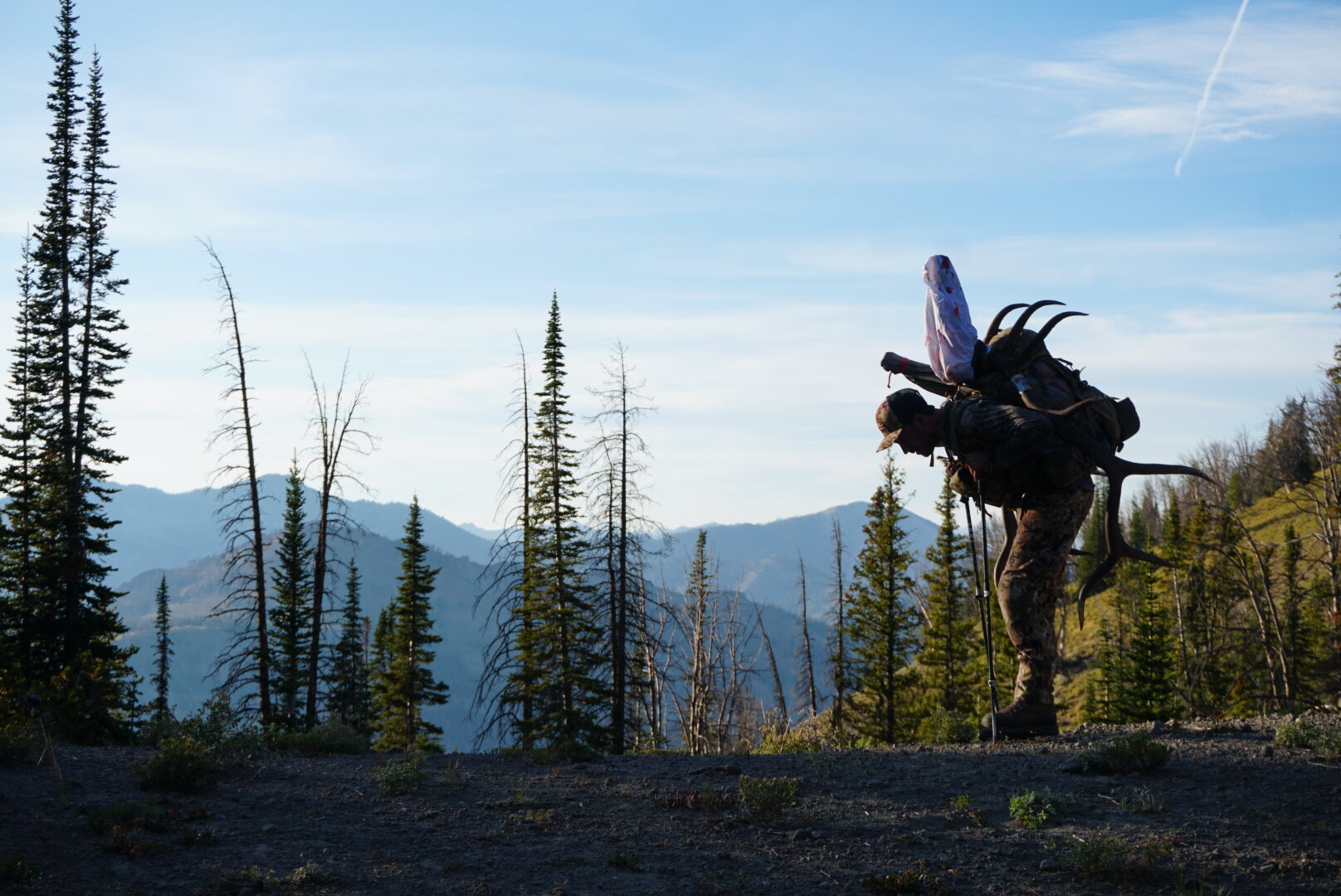

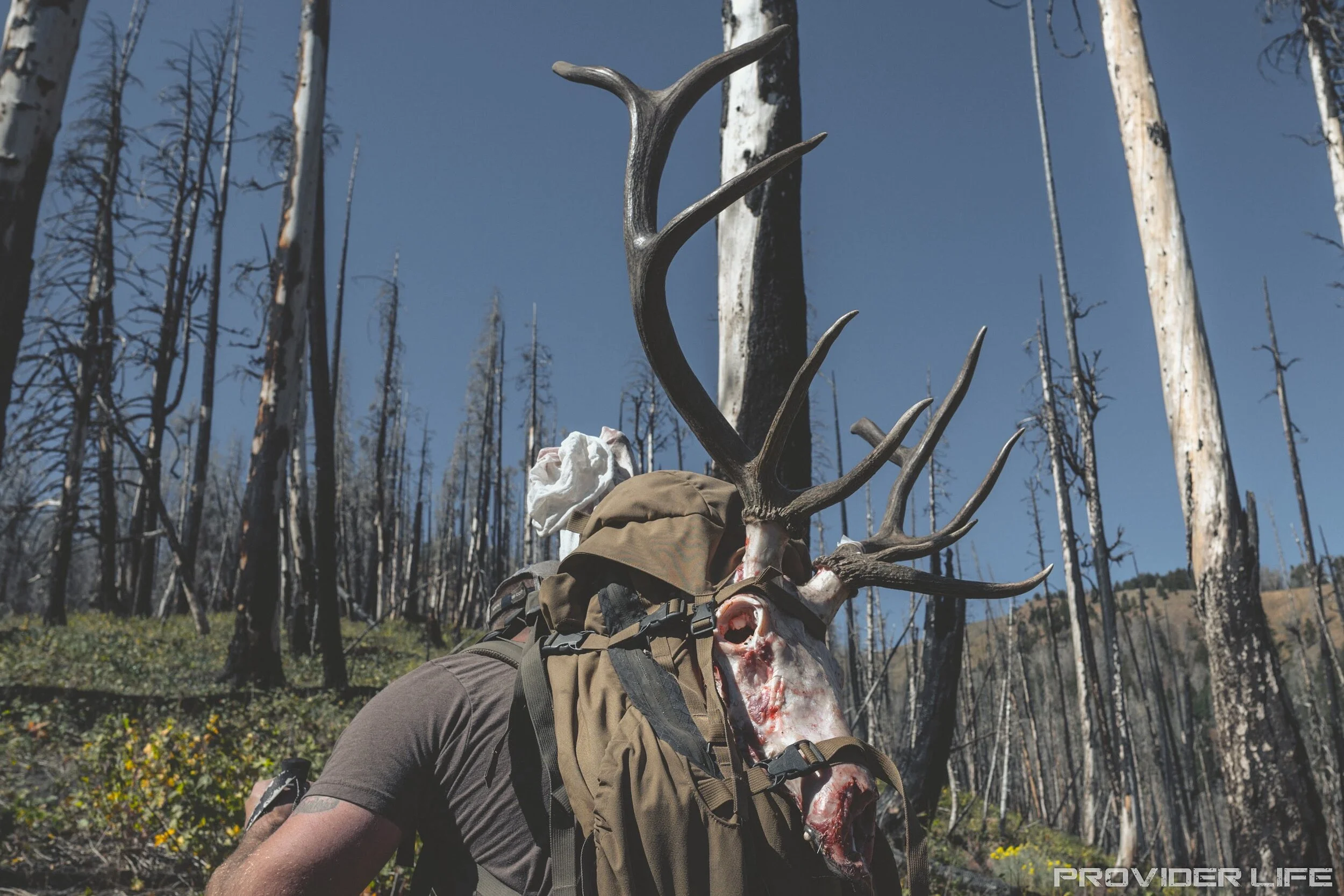




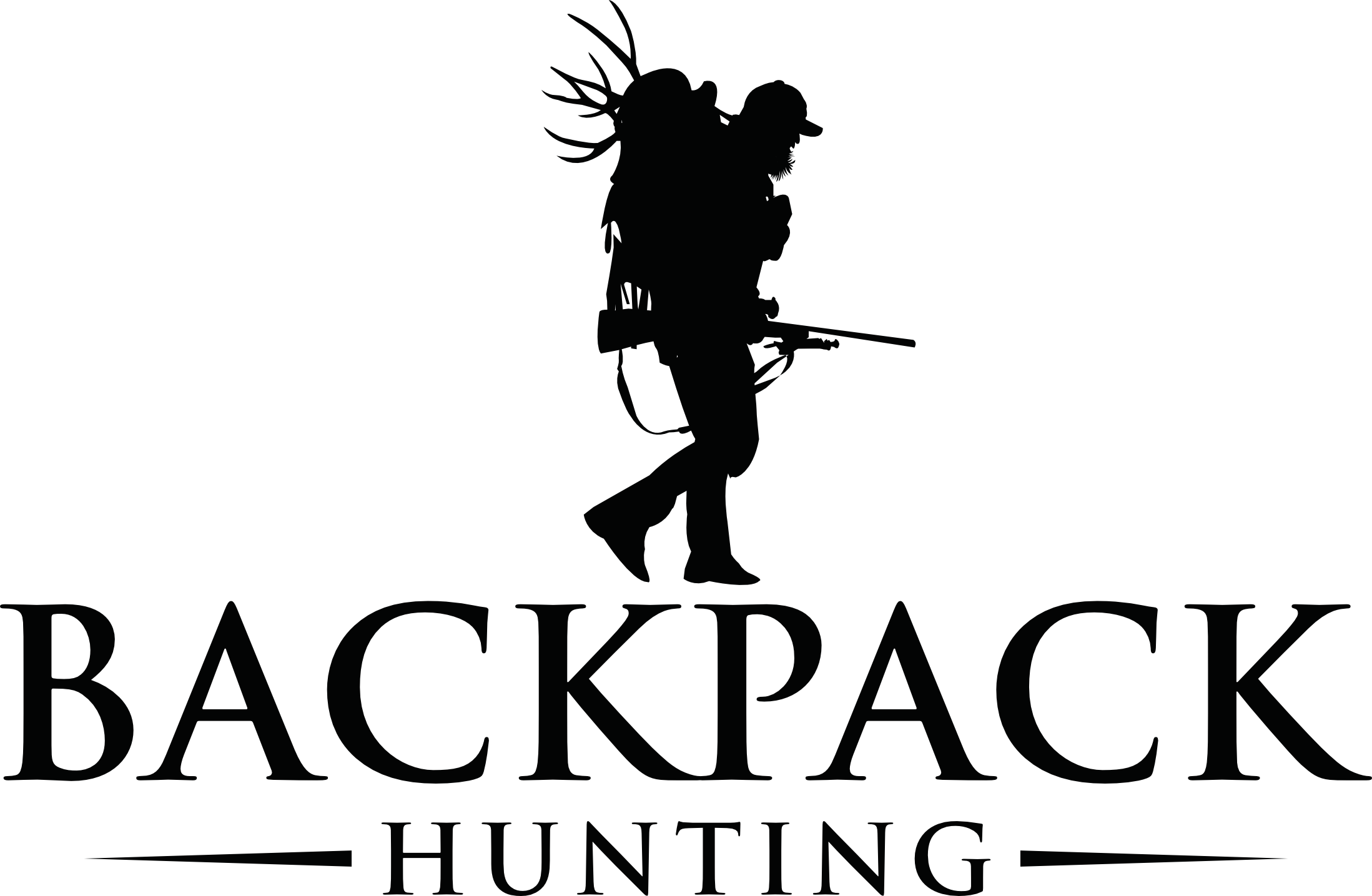



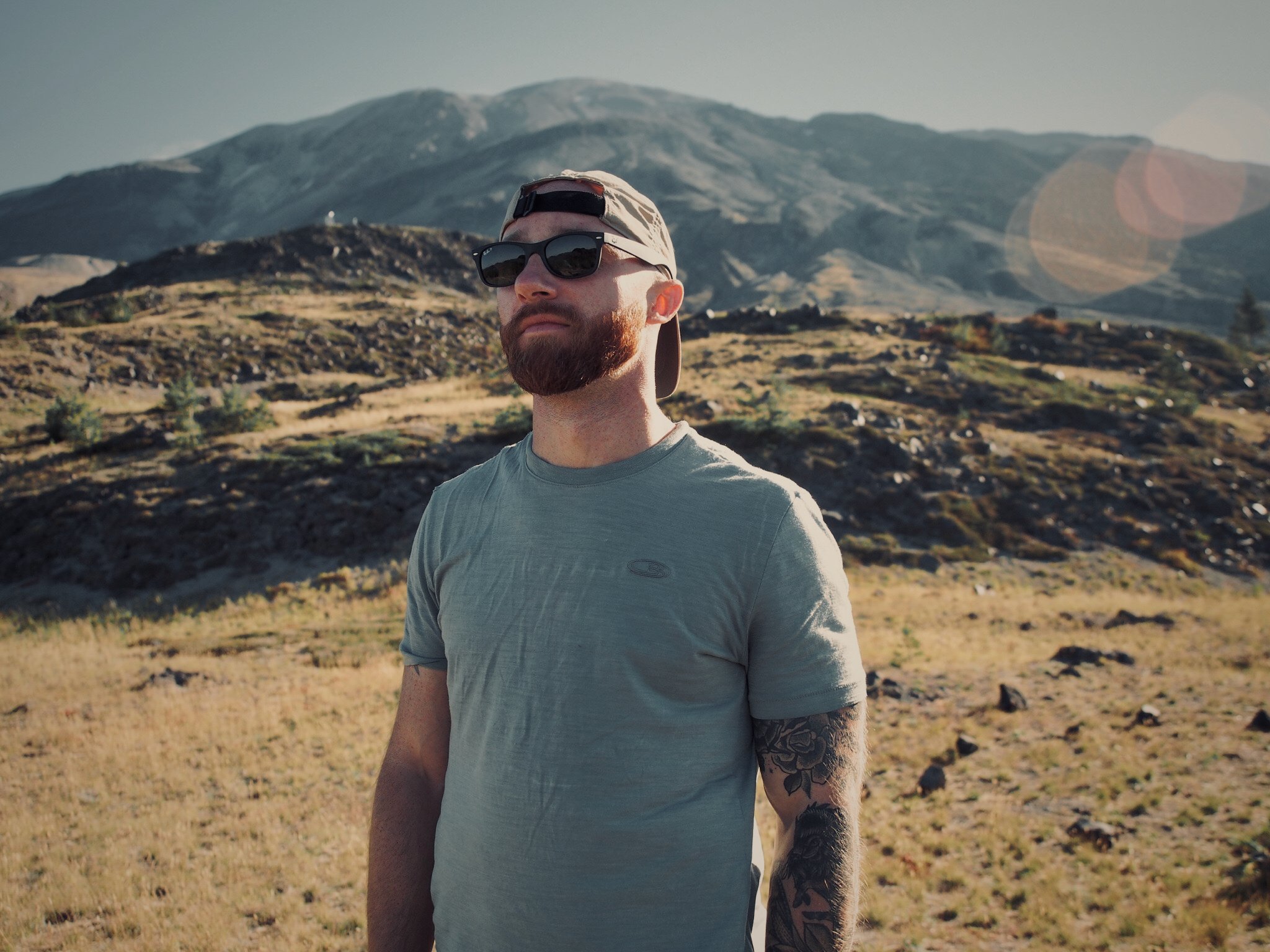



Shelter size is a big deal for backpack hunters. Go too small and waiting out a storm for a few days will drive you crazy, but go too big and you might not find a suitable place to pitch it. Choosing the right sized shelter for your hunt will impact your overall comfort and capability so let’s get it sorted out!